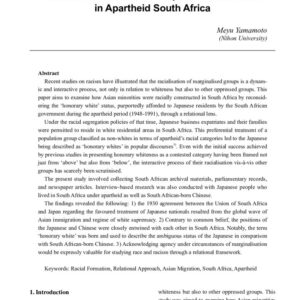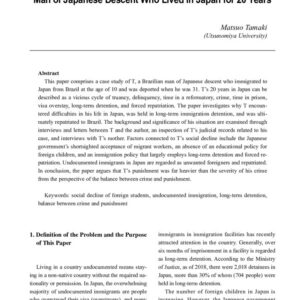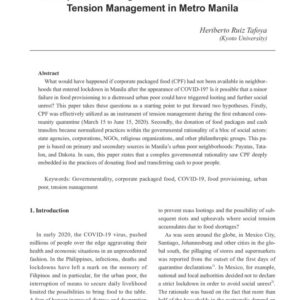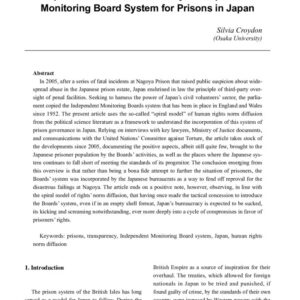Description
Westerners are increasingly discovering Buraku studies.
This paper analyzes their tendency of designating Burakumin as an “outcaste,” considering that the concept of outcaste derives from the caste system (Varna and Jāti) of India.
Incorporating findings of caste system studies, I consider whether adaptation of the caste system theory is reasonable in the case of the Buraku issue, and I find errors.
This paper critiques Edward Said, and argues a relationship between Orientalism, and this tendency of Occidental researchers to apply the outcaste label.
The argument naturally follows that Orientalism in the Buraku issue is a conclusion of power from the Western episteme.
No critique of Orientalism by a Burakumin, as Japanese in Asia, can remain at this theoretical level, however.
To apply the theory, an important procedure will be required of Burakumin.
We must engage in self-reflection as Orientalists against Asians.
Burakumin self-realization depends on our self-analysis.
This paper originates in my own origins, and may therefore add to discussion of the positionality issue.





